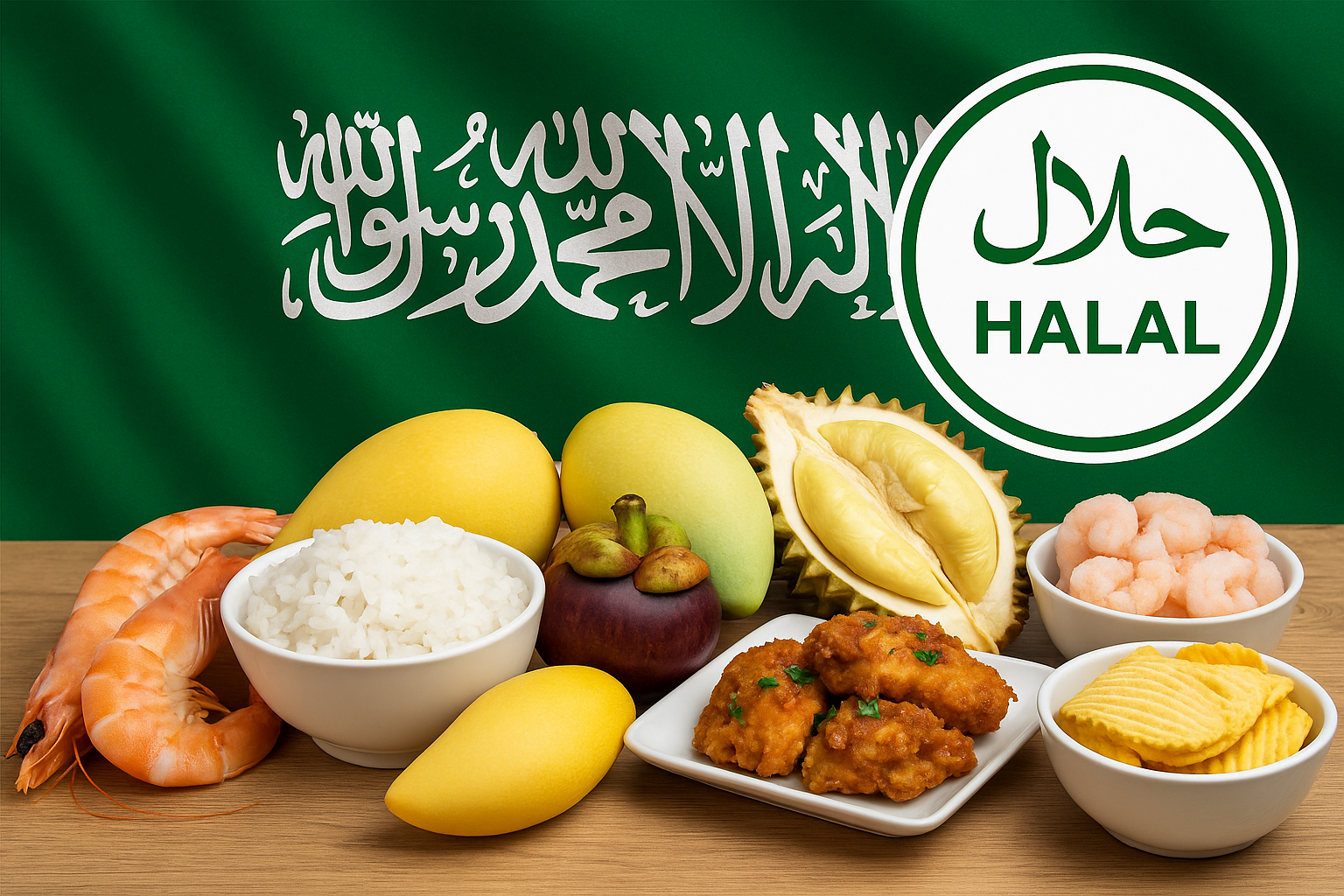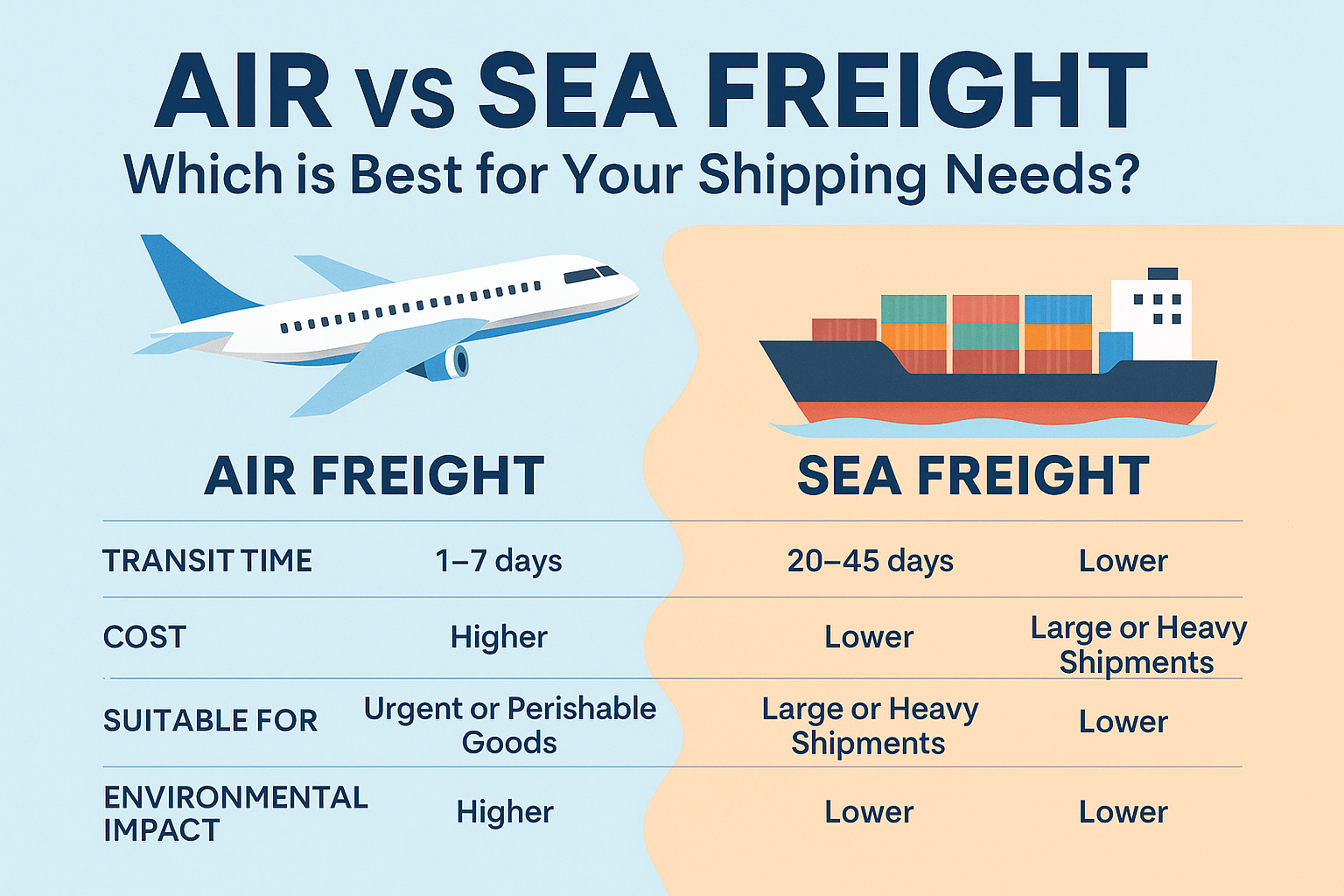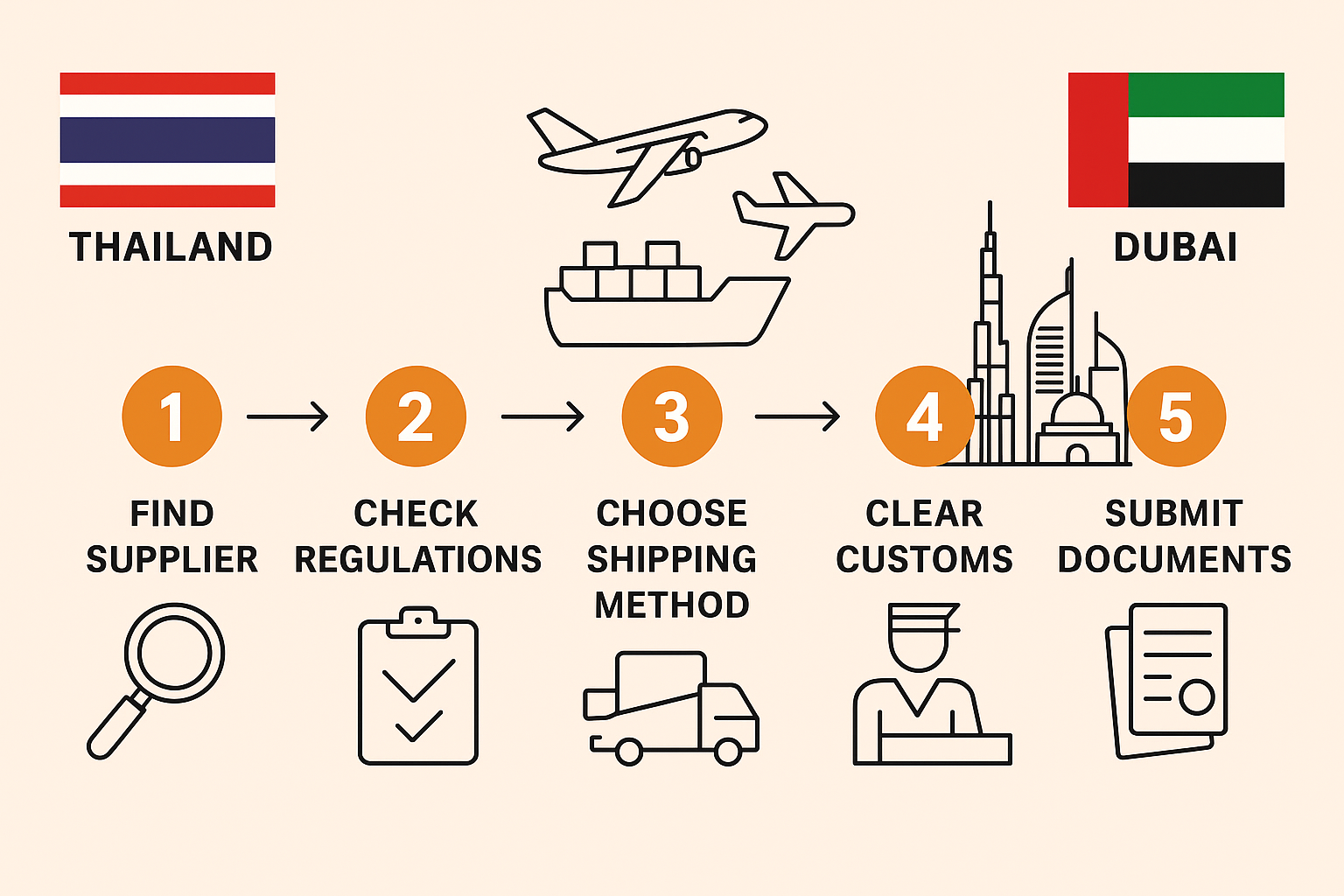Halal Food Market in Saudi Arabia: Opportunities for Thai Exporters
August 27, 2025

The halal food market is one of the largest and fastest-growing markets in the world. In the Middle East, where the population is predominantly Muslim, halal food is not just a preference but a necessity. Saudi Arabia, as the heart of the Muslim world, plays a significant role in shaping the global halal food trade. From meat and seafood to fruits, snacks, and processed food, Saudi consumers demand halal-certified products with high quality and safety standards. This makes the Saudi market a golden opportunity for Thai exporters.
Halal Food Market in Saudi Arabia
Saudi Arabia has a population of over 36 million, nearly all of whom are Muslim. This creates exceptionally strong demand for halal-certified food. According to market data, the Saudi food and beverage sector is worth more than USD 45 billion annually, with a steady growth rate of 5–7% per year.
Popular imported food categories include:
- Meat and seafood
- Fresh and frozen fruits
- Rice and grains
- Ready-to-eat meals and snacks
- Non-alcoholic beverages
Opportunities for Thai Products
Thailand is well known for its high-quality food production, and many of its products perfectly match the needs of Saudi consumers.
High-potential Thai exports include:
- Frozen seafood – Thai shrimp, fish, and squid are widely recognized for their quality.
- Fresh and processed fruits – Mango, mangosteen, durian, and pineapple are highly popular among Saudi consumers.
- Processed halal food – Ready-to-eat meals, instant soups, and halal-certified snacks.
- Thai Jasmine Rice – Still one of the most preferred rice varieties in the Middle East.
Key Regulations and Halal Standards
Exporting to Saudi Arabia requires strict compliance with halal standards. Products must carry a recognized halal certification, along with the following documents:
- Halal Certificate (issued by authorized Islamic organizations in Thailand)
- Health Certificate
- Certificate of Origin
- Customs documents (Invoice, Packing List, Bill of Lading)
Missing any of these documents can result in rejection at customs.
Market Entry Strategies for Saudi Arabia
To succeed in Saudi Arabia, Thai exporters should adopt clear strategies:
- Partner with local distributors – Collaborating with Saudi distributors helps in marketing and logistics.
- Adapt packaging – Use Arabic labeling and display halal logos clearly.
- Leverage digital platforms – E-commerce and social media are increasingly important for Saudi consumers.
- Participate in trade fairs – Events like Saudi Food Expo or Gulfood (Dubai) are excellent platforms to meet buyers.
Conclusion
The halal food market in Saudi Arabia offers massive opportunities for Thai exporters. By ensuring product quality, complying with halal standards, and leveraging strong logistics partners like Vplus Expert, Thai businesses can successfully penetrate this lucrative market and build sustainable growth.
บทความอื่นๆที่ใกล้เคียง
แสดงทั้งหมด
Halal Food Market in Saudi Arabia: Opportunities for Thai Exporters
August 27, 2025
The halal food market is one of the largest and fastest-growing markets in the world. In the Middle East, where the population is predominantly Muslim, halal food is not just a preference but a necessity. Saudi Arabia, as the heart of the Muslim world, plays a significant role in shaping the global halal food trade. From meat and seafood to fruits, snacks, and processed food, Saudi consumers demand halal-certified products with high quality and safety standards. This makes the Saudi market a golden opportunity for Thai exporters.
Halal Food Market in Saudi Arabia
Saudi Arabia has a population of over 36 million, nearly all of whom are Muslim. This creates exceptionally strong demand for halal-certified food. According to market data, the Saudi food and beverage sector is worth more than USD 45 billion annually, with a steady growth rate of 5–7% per year.
Popular imported food categories include:
- Meat and seafood
- Fresh and frozen fruits
- Rice and grains
- Ready-to-eat meals and snacks
- Non-alcoholic beverages
Opportunities for Thai Products
Thailand is well known for its high-quality food production, and many of its products perfectly match the needs of Saudi consumers.
High-potential Thai exports include:
- Frozen seafood – Thai shrimp, fish, and squid are widely recognized for their quality.
- Fresh and processed fruits – Mango, mangosteen, durian, and pineapple are highly popular among Saudi consumers.
- Processed halal food – Ready-to-eat meals, instant soups, and halal-certified snacks.
- Thai Jasmine Rice – Still one of the most preferred rice varieties in the Middle East.
Key Regulations and Halal Standards
Exporting to Saudi Arabia requires strict compliance with halal standards. Products must carry a recognized halal certification, along with the following documents:
- Halal Certificate (issued by authorized Islamic organizations in Thailand)
- Health Certificate
- Certificate of Origin
- Customs documents (Invoice, Packing List, Bill of Lading)
Missing any of these documents can result in rejection at customs.
Market Entry Strategies for Saudi Arabia
To succeed in Saudi Arabia, Thai exporters should adopt clear strategies:
- Partner with local distributors – Collaborating with Saudi distributors helps in marketing and logistics.
- Adapt packaging – Use Arabic labeling and display halal logos clearly.
- Leverage digital platforms – E-commerce and social media are increasingly important for Saudi consumers.
- Participate in trade fairs – Events like Saudi Food Expo or Gulfood (Dubai) are excellent platforms to meet buyers.
Conclusion
The halal food market in Saudi Arabia offers massive opportunities for Thai exporters. By ensuring product quality, complying with halal standards, and leveraging strong logistics partners like Vplus Expert, Thai businesses can successfully penetrate this lucrative market and build sustainable growth.

